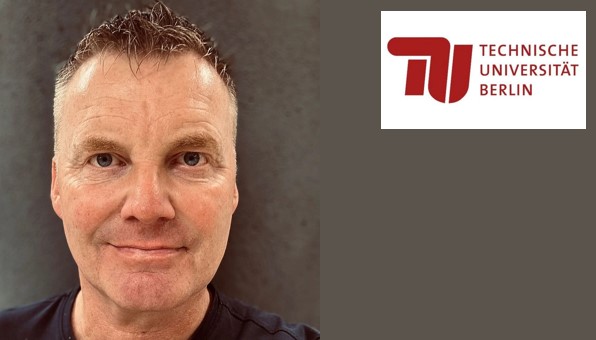Hi, my name is Peter Strasser and I work for TU Berlin.
What was your original motivation to become a researcher?
My original motivation to become a researcher stemmed from a deep curiosity and fascination with understanding how the natural world operates. Research allows me to explore the intricacies of the universe, from the tiniest subatomic particles to the grand scale of galaxies. It’s a journey of discovery, where I can contribute to expanding our collective knowledge and find answers to complex questions about the cosmos, life, and the fundamental laws that govern them.
What is your (main) research area today?
Today, my primary research area revolves around electrochemistry and electrochemical interfaces. Specifically, I focus on the conversion of energy and the production of molecules through electrochemical processes. This field plays a crucial role in addressing global energy and environmental challenges, as it involves the development of sustainable energy conversion technologies and innovative methods for producing valuable chemical compounds.
What is the main objective of your team in BRAVA?
In BRAVA, the main objective of our team is to leverage our two decades of experience in the field. We have a strong foundation in synthetic chemistry and the characterization of materials. Our goal is to apply this expertise to advance the understanding of a specific subject within BRAVA, contributing our knowledge and skills to achieve the project’s overarching goals.
What expertise and facilities does your team have to meet those objectives?
My team has accumulated extensive expertise over the years, specializing in synthetic chemistry and material characterization. We possess a wide range of advanced facilities and equipment for conducting experiments and analyzing materials. This combination of knowledge and resources allows us to effectively carry out our research and contribute to the objectives of the BRAVA project.
Which aspects of your research at BRAVA do you believe are the most innovative and what unique opportunities offer BRAVA to yourself and/or your organisation?
Within BRAVA, the most innovative aspect of our work lies in the opportunity to delve deeper into a family of catalysts that we had not previously explored. Our focus on understanding the formation of intermetallic catalyst phases and the correlation between the structure and function of these materials represents a novel and groundbreaking direction for our research. BRAVA provides a unique platform for this exploration and fosters collaboration and knowledge exchange, which is vital for driving innovation in our field.
How do you see the future use of the BRAVA-results and the impact of BRAVA-project in our daily lives?
The results generated from the BRAVA project have the potential to significantly impact our daily lives. One of the notable applications is the design and deployment of hydrogen fuel cells, particularly in aviation applications. By advancing our understanding of catalysts and energy conversion processes, BRAVA results can contribute to the development of more efficient and sustainable energy solutions, which could revolutionize the way we power our world and reduce our carbon footprint. This has the potential to make aviation more environmentally friendly and pave the way for a cleaner and more sustainable future.

